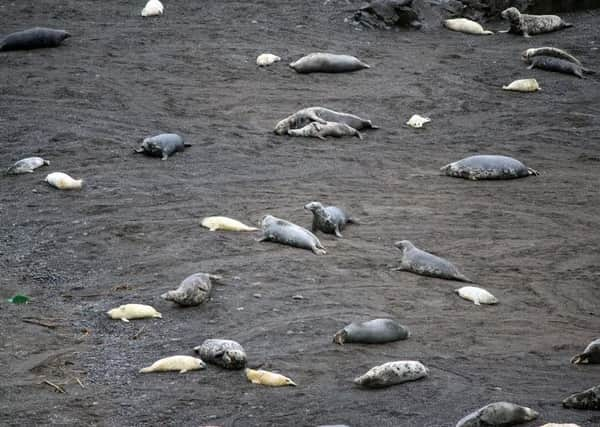St Abbs seal pup numbers on the up


The conservation charity has kept an eye on its seal pups each November for a number of years, but only started detailed monitoring of the numbers of the grey seal pups in 2014 when local staff started to notice that they were seemingly spreading along the coast.
Visual counts backed up by detailed photography showed that on the main pupping beach, the number of grey seal pups had increased from 556 in 2014 to 631 pups in 2015. Total numbers of pups in this area of coast reached 927 pups in 2015. The monitoring work will continue over the next few years to see if this growing trend in seal pup numbers is short or long-term.
Advertisement
Hide AdAdvertisement
Hide AdLiza Cole, property manager at St Abb’s Head, said: “Scotland and the UK hold over 40 per cent of the world population of this species.
“It is good to see so many pups on our beaches, as the grey seal is actually one of the world’s rarest. Grey seals are such a regular sight along our coasts, it is actually quite hard to appreciate this fact at times.”
“However, it is not clear what our counts mean for the grey seal population as a whole at this time as many seal pups won’t last their first year.”
Lindsay Mackinlay, nature conservation adviser added: “The figures for seal pups are interesting and encouraging, and something we will keep an eye on in the foreseeable future. At this time, it appears that other grey seal colonies along the east coast of the UK have witnessed large numbers of seal pups being born in 2015, although we do not know for how long this trend will continue. I believe the Farne Islands colony saw similar increases but the seal pup counts at Blakeney Point in Norfolk remained stable in 2015 after several years of massive growth.”
The pups will stay with their mothers for about a month until they learn to fish for themselves.